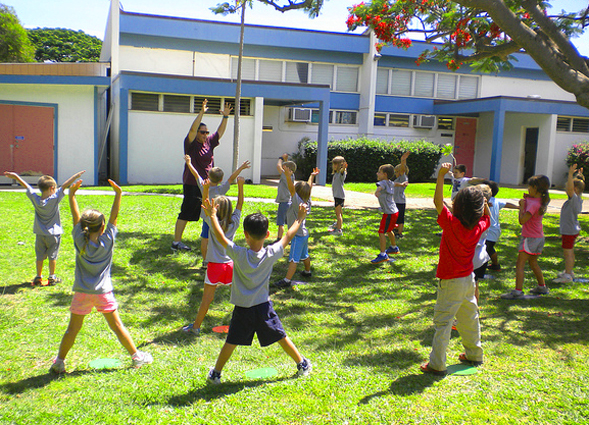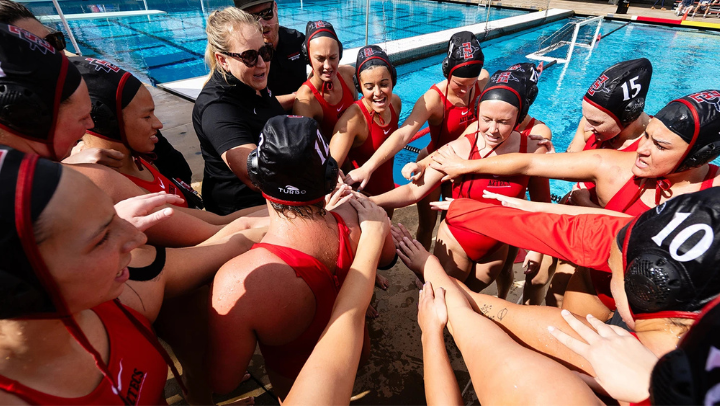Making Schools Healthier Places
The SDSU SPARK programs have reached more than 4 million students and trained 100,000 teachers.

Nearly one of every three U.S. children is overweight or obese, according to the Centers for Disease Control, a rate that has more than doubled in children and quadrupled in adolescents in the past 30 years.
Physical inactivity is a worldwide epidemic for adults and children, contributing to chronic conditions such as diabetes and obesity.
School physical and nutritional education plays an important role in public health and keeping childhood obesity at bay. SPARK: Sports, Play and Active Recreation for Kids — conceived at San Diego State University — is among a small number of evidence-based physical education programs designed specifically to encompass activity and nutrition.
The brainchild of San Diego State University Professors Emeriti James Sallis and Thomas McKenzie, SPARK marks a historical milestone this month: a quarter century of countering childhood obesity through physical activity.
Initially funded by National Institutes of Health grants, SPARK has expanded to include programs for early childhood through high school, as well as after-school and coordinated school health programs.
“Overwhelming evidence shows the great impact that physical activity has on reducing the risk for serious public health problems including cardiovascular disease, obesity, and type 2 diabetes,” McKenzie said.
Sallis added, “Finding ways to increase our children's physical activity will enable future generations of adults to be healthier and enjoy a better quality of life, and will help our communities better manage healthcare demands and costs.”
Tried and true
With more than 40 peer-reviewed publications supporting its outcomes, SPARK is among the most thoroughly researched programs of its type ever. Evidence of its impact on students shows improved classroom performance and academic test scores, as well as increased physical fitness levels and athletic skills.
“By the numbers25 years24 countries1,500 presentations 10,000 workshops 100,000 teachers trained4 million students reached ”
Having been implemented in more than two dozen countries, SPARK averages more than 60 sessions a year at professional conferences and SPARK trainers conduct an average of 400 workshops annually worldwide.
Four important features distinguish SPARK programs: an active curriculum, effective staff development, extensive follow-up support, and content-matched, age-appropriate equipment. Through collaboration among university, public school and private sectors, SPARK programs have been implemented in all 50 states as well as internationally, and serve as models for physical education and physical activity curricula.
With more than 100,000 teachers trained, millions of students live healthier and more active lives thanks to the programs.
“It is the dream of every researcher to find a solution to a major problem,” Sallis said. “SPARK is a great example of an evidence-based program that is improving the lives of young people across the United States and in many other countries.”
Recognition and celebration
This year, SPARK was one of only 44 recipients across the country selected for the 2014 President’s Council on Fitness, Sports & Nutrition (PCFSN) Community Leadership Award. The award is given annually to individuals or organizations who improve the lives of others within their community by providing or enhancing opportunities to engage in sports, physical activities, fitness or nutrition-related programs.
SPARK is celebrating 25 years of improving health and countering childhood obesity with a series of events, including a 25-day Physical Activity Challenge to kick off the 2014-2015 school year in the fall.
Find out more about SPARK programs and resources online.



